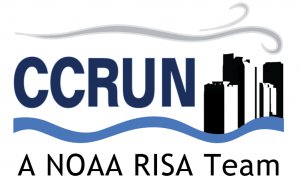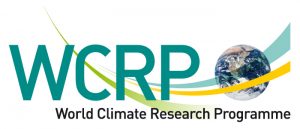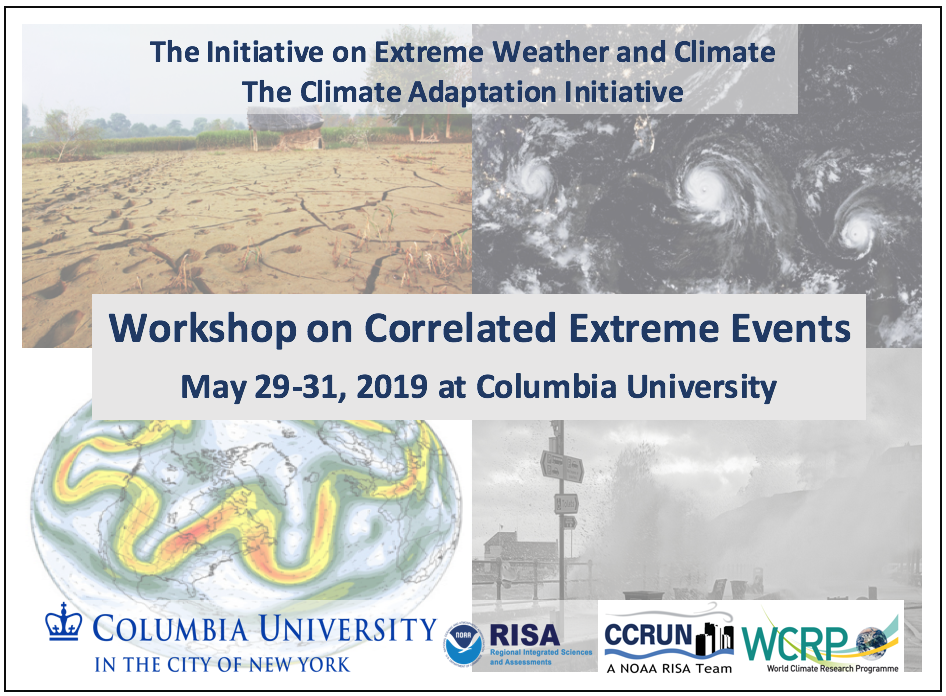Workshop on Correlated Extremes
The Workshop on Correlated Extremes took place on Columbia University’s Morningside campus (Manhattan, NYC) on May 29-31, 2019, preceded by an evening panel on May 28. It was comprised of a blend of invited talks and abstract submissions (both talks and posters), with a significant amount of time devoted to discussions. Total in-person attendance was around 175.
Our Twitter information is @CUcorrextr2019, #correlatedextremes19.
Video Recordings
The large majority of the workshop proceedings have been recorded. We provided this service to aid in broadening access for people who did not travel to New York for personal, financial, or environmental reasons.
The recordings can be found at the following links:
May 28 May 29 (through 1:40) May 29 (from 1:55) May 30 May 31
Talks and Posters
Link to available slides and pdfs on Google Drive
Conference Themes
Motivation and Vision
The last few years have seen emerging recognition of the societal impacts associated with climate extremes that occur close together in space or time. Globalized networks of interaction make certain combinations and correlation structures especially potent from an impacts standpoint.
The body of research on correlated climate extremes and their impacts is rapidly growing and encompasses a wide variety of event types and author perspectives, touching on climate and atmospheric dynamics, boundary-layer meteorology, statistics, climatology, policy, and social sciences. Projected changes in both circulation and regional feedbacks (such as land-atmosphere interactions) have been implicated in many of the observed and future increases in various types of correlated extremes. Finally, recent developments in spatial statistics and extreme-value theory have shown great promise for examining complex changes from a more theoretical perspective.
Our goal in this workshop is to bring together researchers who have contributed directly to this topic, or whose work touches on a key aspect of it. The workshop will complement prior related meetings with respect to the framing of risk as resulting from multivariate interactions, and to the need for more impacts-driven climate research across sectors. However, it will be distinguished from them by its broad survey of multiple types of correlated extremes; by its explicit interweaving of climate science, policy, and impacts; and by its placement outside the bounds of traditional event-based categories of study.
Expected Outcomes
We hope the workshop aids in coalescing the community of interested researchers and practitioners around shared definitions, themes, best practices, and future research priorities. We are optimistic that the cross-disciplinary interactions the workshop will foster will contribute to producing new funding streams, inspiring future research, and supporting actionable science and risk calculations. To this end, we plan to publish a peer-reviewed perspectives article and to encourage media accounts that lead to greater research, practitioner, and public awareness. Considering the emerging nature and broad applicability of the topic, we believe there is potential for highly visible and valuable research to emerge from this workshop.
Schedule Overview
All events will take place in Davis Auditorium in the Schapiro Center building, 530 West 120th Street, New York, NY — see below for additional logistical details.
Tuesday, May 28
- 7:00pm – 9:15pm: Kickoff panel + Reception
Wednesday, May 29
- 8:00am – 8:45am: Registration
- 8:45am – 9:05am: Welcome
- 9:05am – 9:55am: Introductory keynotes
- 9:55am – 10:10am: Coffee break
- 10:10am – 12:00pm: Compound Events: Diverse Approaches
- 12:00pm – 1:10pm: Lunch (on your own)
- 1:10pm – 3:00pm: Compound Events: Storms and Floods
- 3:00pm – 4:10pm: Poster Session I, with coffee & snacks
- 4:10pm – 6:00pm: Concurrent Events
Thursday, May 30
- 8:45am – 12:00pm: Sequential or Persistent Events
- 12:00pm – 12:30pm: Correlated Extremes In Traditional Disciplines (part 1)
- 12:30pm – 1:00pm: Abbreviated lunch
- 1:00pm – 1:30pm: Correlated Extremes In Traditional Disciplines (part 2)
- 1:30pm – 3:00pm: Breakout discussions
- 3:00pm – 5:05pm: Sectoral Perspectives on Societal Impacts
- 5:05pm – 6:15pm: Poster Session II, with coffee & snacks
Friday, May 31
- 9:00am – 10:50am: Systemic Risk: Identification, Response, and Societal Feedbacks
- 10:50am – 11:05am: Coffee break
- 11:05am – 12:30pm: Wrap-up discussions, reflections, and synthesis
Detailed Schedule
* indicates presentation by an early-career researcher (<= 3 years from PhD)
—Tuesday 5/28—
Kickoff Panel
7:00-7:10: Opening Remarks — Radley Horton and Colin Raymond
7:10-8:30: Kate Marvel (NASA GISS) [moderator], Sarah Perkins-Kirkpatrick (UNSW), Michael Oppenheimer (Princeton), Adam Sobel (Columbia)
8:30-9:15: Reception
—Wednesday 5/29—
Welcome
8:45-9:05: Radley Horton and Colin Raymond
Keynotes
9:05-9:30: Jakob Zscheischler (U. Bern), “The challenges associated with correlated climate extremes”
9:30-9:55: Kate White (US Army Corps of Engineers), “Correlated extremes from a practitioner’s perspective”
Compound Events: Diverse Approaches (Session Chair: Jakob Zscheischler)
10:10-10:25: Alexandre Ramos (U. Lisbon), “Compound events in the Iberian Peninsula: From hydrometeorological disasters to wildfires”
10:25-10:40: Audrey Brouillet* (IPSL), “Co-occurrence of temperature and heat stress extremes : the role of the near-surface air relative humidity”
10:40-10:55: Sha Zhou* (Columbia U.), “Future risks of compound drought and aridity events”
10:55-11:10: Ethan Coffel* (Dartmouth), “Increasingly frequent hot and dry years exacerbate water scarcity in the Nile Basin despite rising precipitation”
11:10-11:25: Jana Sillmann (CICERO), “Double trouble: Air pollution and extreme temperatures”
11:25-11:40: Michael Wehner (LBNL), “Estimating the probability of multi-variate extreme weather events”
11:40-12:00: Moderated discussion
Compound Events: Storms and Floods (Session Chair: Thomas Wahl)
1:10-1:25: Philip Ward (VU Amsterdam) [invited], “Compound flooding due to surge and river discharge at the global scale”
1:25-1:40: Kathleen McInnes (CSIRO), “Recent efforts to understand the drivers of compound events in Australia”
1:40-1:55: Michelle Hummel* (U. Texas), “Assessment of coastal groundwater hazards from compound extreme water levels and precipitation”
1:55-2:10: David Lucio* (U. Cantabria), “Multivariate stochastic modeling of long-term sea-states for extreme and regular hourly conditions”
2:10-2:25: Merce Casas Prat (ECC Canada), “Multivariate ocean wave extremes in the Arctic region”
2:25-2:40: Ivan Haigh (U. Southampton) [remote presentation], “Assessing the characteristics and drivers of compound flooding events around the UK coast”
2:40-3:00: Moderated discussion
Poster Session I, 3:00-4:10
Poster presentations
Concurrent Events (Session Chair: Olivia Martius)
4:10-4:25: Thomas Wahl (UCF) [invited], “Using multivariate statistical models to assess spatial footprints of global storm surges”
4:25-4:40: Martha Vogel* (ETH Zurich) [remote presentation], “Concurrent 2018 hot extremes across the Northern Hemisphere due to human-induced climate change”
4:40-4:55: Kai Kornhuber* (U. Oxford), “Rossby waves and simultaneous weather extremes”
4:55-5:10: Carly Tozer (CSIRO), “The influence of global scale wave trains on compound and concurrent weather extremes in Tasmania and beyond”
5:10-5:25: Bradfield Lyon (U. Maine), “Projected increase in the spatial extent of contiguous U.S. summer heat waves and associated attributes”
5:25-5:40: Lisa-Ann Kautz* (KIT), “Forecast variability of the blocking system over Russia in summer 2010”
5:40-6:00: Moderated discussion
—Thursday 5/30—
Sequential or Persistent Events (Session Chair: Amir AghaKouchak)
8:45-9:00: Olivia Martius (U. Bern) [invited], “Recurrent and persistent surface extremes and their links to recurrent Rossby wave patterns”
9:00-9:15: Meredith Fish* (UC San Diego), “Assessing the connection between atmospheric river events and exploring their relation to extratropical and tropical large-scale drivers”
9:15-9:30: Colin Zarzycki (Penn State), “Storm-level metrics for categorizing the societal and hydrological impacts of northeastern U.S. winter storms”
[Unscheduled break for fire alarm]
11:10-11:25: Arlene Fiore (Columbia U.), “More frequent and longer duration pollution and heat events over the 21st century in a small chemistry-climate model ensemble”
11:25-11:40: Dim Coumou (VU Amsterdam/PIK), “Persistent summer circulation: Risks, impacts & drivers”
11:40-11:55: Sarah Perkins-Kirkpatrick (UNSW) [invited], “A comprehensive assessment of global and regional observed heatwave trends”
Correlated Extremes in Traditional Disciplines (Session Chair: Suzana Camargo)
11:55-12:10: Amir AghaKouchak (UC Irvine), Floods
12:10-12:25: Deepti Singh (Washington State), “Concurrent regional and global temperature extremes”
1:00-1:15: Norel Rimbu (Alfred Wegener Inst), “Variability of extreme climate over Europe from a paleoclimate perspective”
1:15-1:30: Park Williams (Columbia U.), Wildfires
Breakout Discussions, 1:30-3:00
Sectoral Perspectives on Societal Impacts (Session Chair: Adam Sobel)
3:00-3:15: Steve Bowen (Aon) [invited]
3:15-3:30: Jeremy Hess (U. Washington) [invited], Cascading effects on human health
3:30-3:45: Jane Baldwin* (Princeton U.), “The impact of temporally compound heat wave events on mortality”
3:45-4:00: Alex Ruane (NASA GISS) [invited], Agriculture and food security
4:00-4:15: Weston Anderson* (Columbia U.), “What causes concurrent crop failures?”
4:15-4:30: Lisa Thalheimer* (U. Oxford), “The multifaceted relationship between extreme weather events, displacement and conflict: New insights from Somalia”
4:30-4:45: James Done (NCAR), “Understanding the impacts of correlated extremes on flood risk and water resource management”
4:45-5:05: Moderated discussion
Poster Session II, 5:05-6:15
Poster presentations
—Friday 5/31—
Systemic Risk: Identification, Response, and Societal Feedbacks (Session Chair: Alex Ruane)
9:00-9:15: Marla Schwartz-Pourrabbani (Swiss Re) [invited], “Why this matters — extreme events and reinsurance”
9:15-9:30: David Carozza* (UQAM), “On the impact of ENSO on spatial diversification of riverine flood and tropical cyclone wind risk at the global scale”
9:30-9:45: Virginia Iglesias* (U. Colorado), “Extreme events meet ecological resilience theory”
9:45-10:00: Franziska Gaupp* (IIASA), “Increasing risks of multiple breadbasket failure under 1.5 and 2 C global warming”
10:00-10:15: David Bresch (ETH Zurich) [invited] [remote presentation], “Connecting loose ends — disentangling compound causation”
10:15-10:30: William Travis (U. Colorado), “Timing is everything: correlated extremes meet adaptation pathways”
10:30-10:50: Moderated discussion
Reflections & Synthesis, 11:05-12:30
Organizing Committee
Co-Chair: Colin Raymond (Columbia University) — cr2630@columbia.edu
Co-Chair: Radley Horton (Columbia University) — rh142@columbia.edu
Amir AghaKouchak (University of California Irvine)
Suzana Camargo (Columbia University)
Noah Diffenbaugh (Stanford University)
Olivia Martius (University of Bern)
Michael Oppenheimer (Princeton University)
Alex Ruane (NASA GISS)
Sonia Seneviratne (ETH Zürich)
Thomas Wahl (University of Central Florida)
Jakob Zscheischler (University of Bern)
Sponsors
This conference is sponsored by Columbia University’s Adaptation Initiative and Initiative on Extreme Weather and Climate; NSF; NOAA RISA; WCRP; COST; and Aon.









